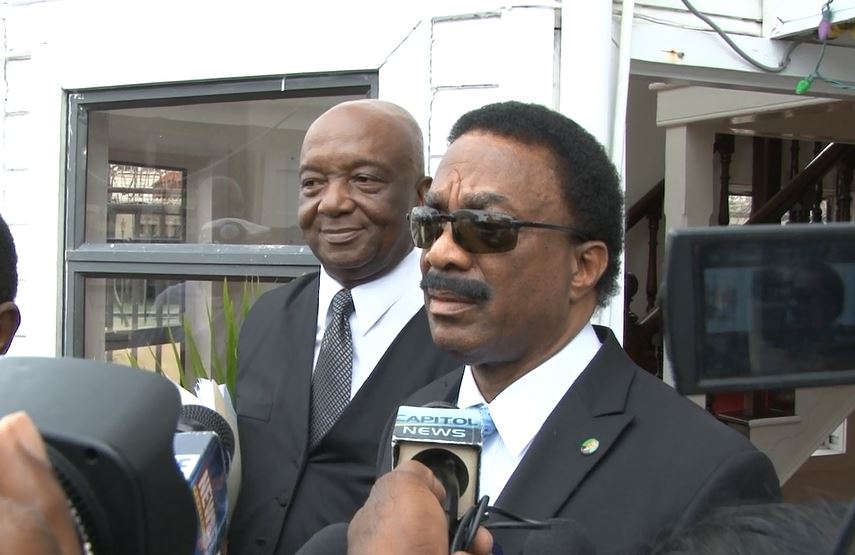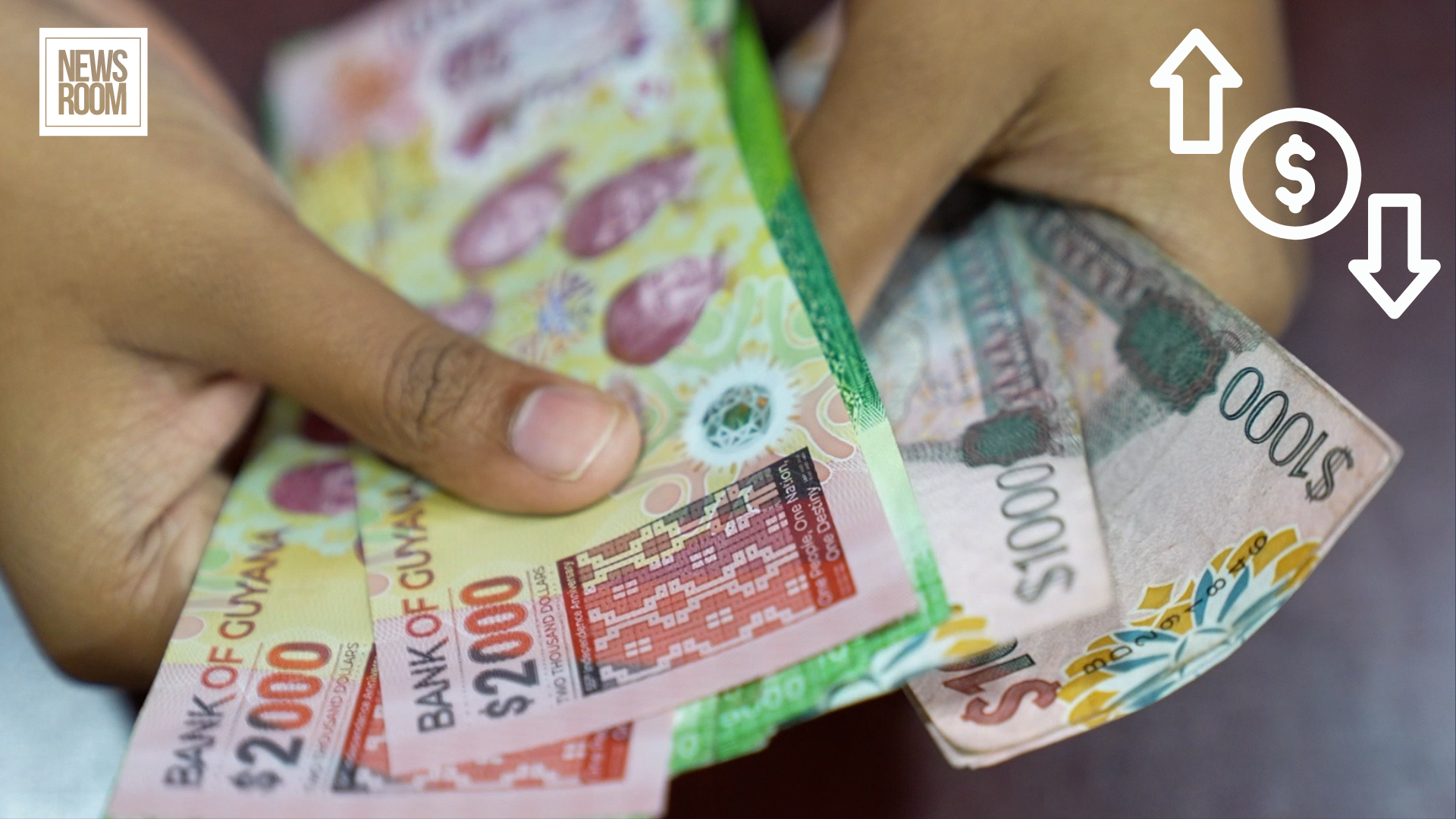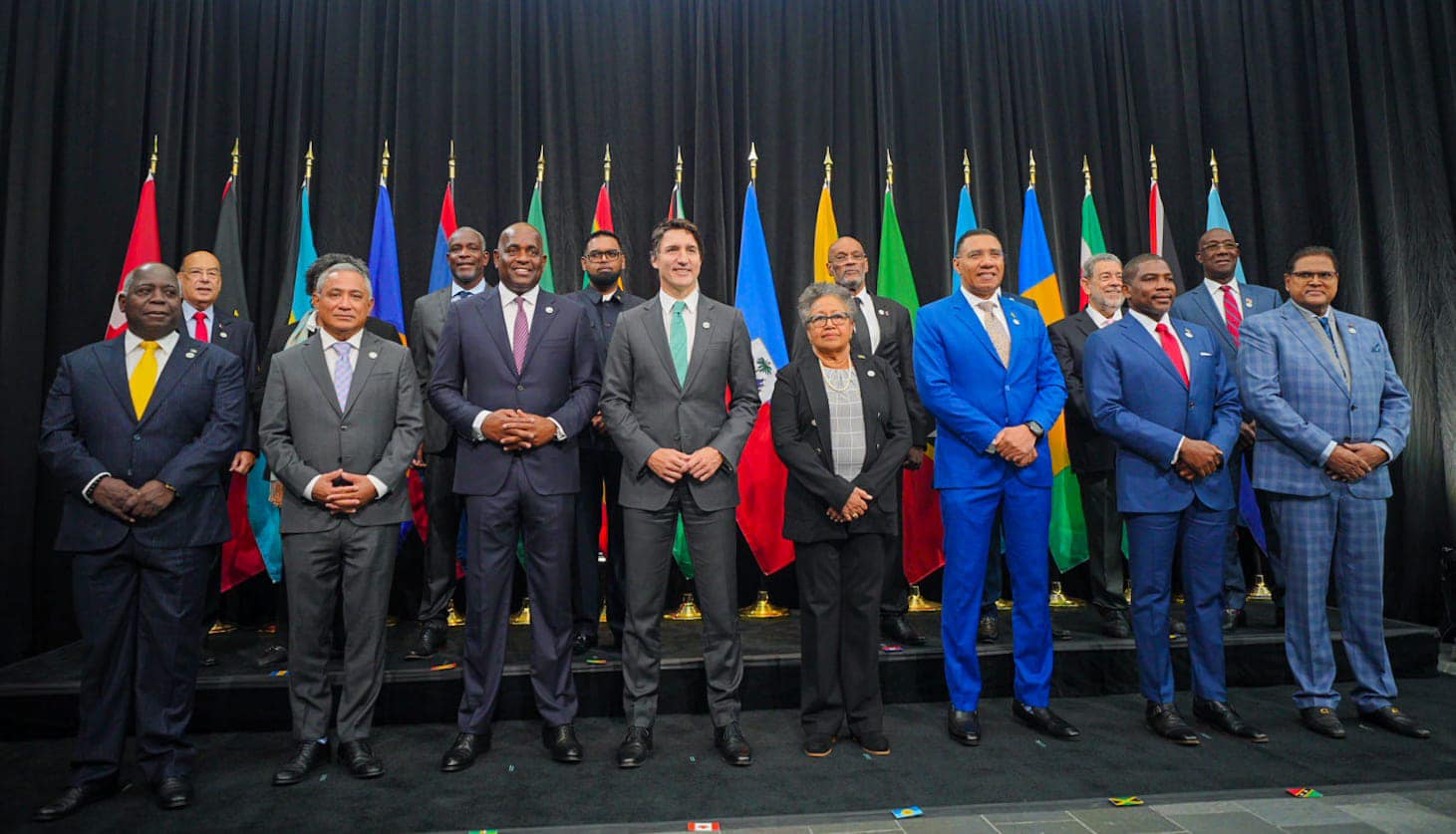The Government is asking the Caribbean Court of Justice (CCJ) to issue an order that the President, Prime Minister and Ministers and Cabinet shall remain in office until after the next General and Regional Elections.
In its submissions to the court, the Government argues the notion that the Government should resign forthwith is “a prescription for anarchy.”
The CCJ will deliver its Consequential orders on Friday and has asked both sides to make written submissions.
The document, released by the Attorney General Chambers, is requesting that the Court dismiss the contention “peremptorily” that it should resign now.
The Opposition is arguing that the Government must resign in accordance with Article 106 (6) of the Constitution of Guyana following the passage of the December 21-No Confidence motion.
However, the Government is holding on to article 106 (7) which states that notwithstanding its defeat, the Government shall remain in office and hold an election until a new President is sworn in.
The submission made by the Government’s lawyers argues that adhering to article 106(6) will leave Guyana without anyone capable of lawfully exercising executive authority.
Since the CCJ on June 18 validated the passage of the No-Confidence motion, the Opposition has protested the Ministry of the Presidency calling on the Government to resign.
However, up to last week, Cabinet comprising the President and his council of senior ministers met and deliberated on issues.
Joseph Harmon, Director General of the Ministry of the Presidency said at a press conference Thursday, “we have seen nothing in the ruling of the CCJ which says the Cabinet should not meet.” In fact, the Cabinet also granted no objection to millions of dollars in contracts.
Also, at a press conference on Friday at the People’s National Congress Reform (PNCR) office at Congress place, Sophia, the party’s member, Nicolette Henry said: “when the orders are given [by the CCJ], this Government has always and would always respect the ruling of the court.”
Chair of the PNCR Volda Lawrence, who was also at the press conference, noted that it must be considered that the Government also includes Regional authorities who are also elected at the General and Regional Elections.
“Just think about what is going to happen in our country. Who is going to lead who? What is going to happen with the services that are provided,” she noted.
It should be noted that while the Regional Chairs are elected at the General and Regional Elections, the Regional Executive Officers who are public servants, deal with the day to day administration of works in the regions.
The PNCR is the largest party in the coalition Government and also holds the Presidency and the Attorney General posts.
Holding of elections
The Constitution provides for the elections to be held within three months unless the two-thirds of all elected members of the National Assembly supports an extension.
The full Assembly has not met since the motion was passed on December 21, 2018. The three months’ deadline alluded to expired on March 22, 2019.
The Government, in its submissions, argues that the CCJ cannot determine a time period for elections and this must be left to the National Assembly to decide on whether it will extend the period and to when it will do so.
“The Court has no jurisdiction to extend the period for elections,” the Government says.
It also wants the CCJ to order the convening of the National Assembly to pass the resolution to extend the time for holding elections.
Preparing for a case where the resolution does not get the support of two-thirds of the Assembly, “the President after consultation with the Guyana Elections Commission shall dissolve the National Assembly and General and Regional Elections shall be held on a date to be fixed by the President.”
The dissolution of Parliament precedes the holding of an election.
The Government notes that this “falls exclusively to the President to decide when to dissolve Parliament.”
“There is no evidence before this court that proves or suggests that the President will fail to discharge his constitutional duty,” the Attorneys noted, adding that the President will do so after consulting with the Guyana Elections Commission.
The Government also included its persistent argument that there must be house to house registration, noting that elections must be held using a National Register of voters’ list prepared by ‘house to house’ registration.
Finally, the Government submitted that no order relating to costs must be issued.












